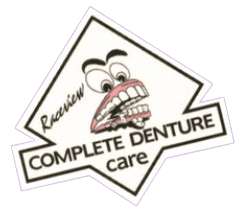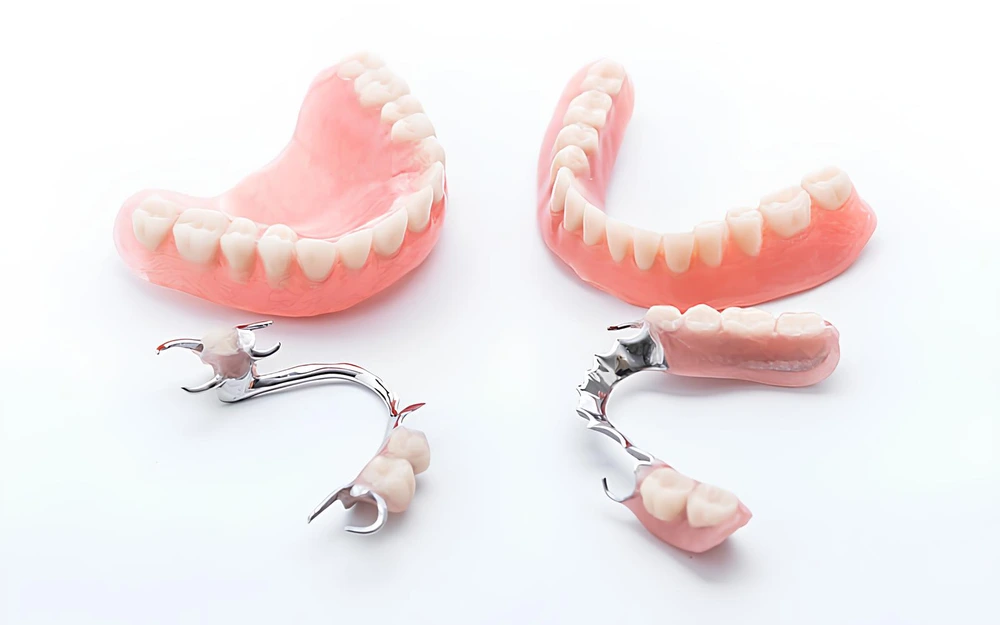When deciding on dentures, understanding the difference between chrome dentures and acrylic dentures is essential for making the right choice. In Ipswich, patients often face this choice, each offering unique benefits depending on individual needs. Understanding the differences between these materials can simplify and enhance the decision-making process, ensuring you select a denture that suits your lifestyle, comfort, and budget.
Acrylic dentures are widely used for full replacements or immediate dentures due to their affordability and quick fabrication. On the other hand, chrome dentures, particularly cobalt chrome partials, provide superior durability, a thinner and more comfortable fit, and longer-lasting results. Factors such as the number of missing teeth, daily habits, and long-term maintenance play a key role in determining which type is right for you.
For residents in Ipswich considering a reliable and comfortable solution, chrome dentures offer a strong, lightweight option that strikes a balance between functionality and aesthetics. By weighing your options carefully, you can choose dentures that not only restore your smile but also enhance confidence and oral health for years to come.
What Are Acrylic Dentures?
Acrylic dentures are made from a plastic resin. Full (complete) dentures, replacing all teeth in an upper or lower jaw, are always acrylic. They cover the gums and sometimes the palate, creating suction to stay in place. Immediate dentures are typically acrylic as well. The biggest draw of acrylic dentures is cost and convenience: they’re quick to fabricate and easier to adjust or repair in a local dental lab. For example, if you have a limited budget or need an immediate solution, acrylic dentures are a practical choice.
Pros of Acrylic Dentures:
- Affordable: Lower upfront cost than metal dentures.
- Quick to make: You can get fitted sooner, including same-day immediate dentures.
- Easy to repair or reline: Acrylic material can be adjusted or patched by most denture technicians.
- Customizable appearance: Acrylic teeth can be tinted to match your natural teeth color.
Cons of Acrylic Dentures:
- Bulkier feel: Acrylic is thicker, so these dentures can feel more bulky or “plastic” in your mouth.
- Less durable: They are more prone to chipping or cracking if dropped.
- Pressure on gums: Acrylic dentures rely mostly on gum support, which can sometimes irritate soft tissue.
- Shorter lifespan: Typically lasts around 5–10 years before needing replacement.
What Are Chrome (Cobalt Chrome) Dentures?
Chrome dentures, often called cobalt chrome partial dentures, have a cast-metal framework with acrylic teeth attached. They’re mainly used when you still have some natural teeth remaining. Because metal is very strong, chrome dentures can be made much thinner than acrylic ones. They often avoid covering the palate, which means you taste food better and feel less full when eating. Chrome dentures fit snugly using precision clasps and rests that gently anchor to your remaining teeth.
Pros of Chrome Dentures:
- Lightweight & thin: Metal strength means minimal bulk. Many wearers report that chrome dentures feel more natural and comfortable.
- Excellent fit: The metal is cast for a precise fit, so chrome dentures tend to hug your gums and teeth better.
- Durable: Highly resistant to wear and less likely to break if dropped.
- Long-lasting: Can last 10–15 years or more with care.
- Better support: Metal clasps and rests distribute chewing forces to your teeth, not just your gums.
- Less gagging: Because less of the roof of the mouth is covered, you breathe and swallow more naturally.
- High hygiene: The polished metal surface is less porous and easier to clean.
Cons of Chrome Dentures:
- Higher cost: The material and fabrication are more expensive.
- Longer wait: Making a metal denture requires more detailed lab work, so it can take longer to receive.
- Visible clasps: The metal clasps may be noticeable when you smile, though skilled technicians try to hide them.
- Adjustments: More specialized equipment is needed for repairs or adjustments, so minor tweaks often require a visit to the denture clinic.
Comparing Acrylic vs Chrome Dentures
| Feature | Acrylic Dentures (Plastic) | Chrome Dentures (Metal) |
| Material | Acrylic resin (plastic) | Cobalt-chrome metal framework |
| Typical Use | Full dentures, immediate dentures, and budget partials | Partial dentures (retaining some natural teeth) |
| Bulk & Thickness | Thicker and bulkier, it often covers the palate | Thin and lightweight, usually spares palate |
| Comfort & Fit | Can feel bulky; may cover the roof of the mouth | More natural feel; snug fit with less gum coverage |
| Durability | Less durable; prone to cracks/chips | Highly durable; resists breakage |
| Lifespan | Typically 5–10 years | Often 10–15+ years |
| Adjustability | Easy to reline/repair at most labs | Harder to adjust; requires specialist tools |
| Initial Cost | Lower cost | Higher cost (better materials, lab time) |
| Ideal Candidates | Budget-conscious, need a quick solution, full arch replacement | Active lifestyle, more teeth to replace, want longevity |
| Aesthetics | Teeth and gums can be color-matched closely | Metal clasps may be visible |
Caring for Your Dentures
Good maintenance extends the life of any denture. Follow these chrome denture care tips and general guidelines to keep your new teeth in top shape:
Clean Daily: Always remove and rinse your dentures after eating to wash away loose food. Then brush them gently at least twice a day (morning and night) using a soft brush and mild soap or a denture cleanser. Avoid regular toothpaste, as it’s abrasive and can scratch the surface.
Soak Overnight: Most dentures (including chrome) should be kept moist when not worn. Soak them overnight in plain water or a denture cleaning solution recommended by your prosthetist. This keeps them from drying out and helps reduce plaque buildup.
Be Gentle with Chrome: Cobalt-chrome metal is durable but can be sensitive to harsh chemicals. Do not use bleaching agents or products containing chlorine; these can corrode or tarnish the metal parts. If using a cleaner, limit the soak time when treating cobalt-chrome dentures. Citric-acid-based or gentle denture cleaning tablets are safe for metal frameworks.
Brush Your Mouth: After removing dentures, clean your gums, tongue, and any remaining teeth with a soft brush or gauze. This keeps your mouth healthy and prevents infections or soreness under the denture.
Regular Check-Ups: Visit your denture clinic at least once a year. They can professionally clean, check the fit, and make any necessary adjustments. If your dentures ever feel loose or uncomfortable, don’t ignore them; get them checked to avoid sore spots or gum irritation.
By keeping up a simple care routine and avoiding abrasive products, you’ll help your dentures (and gums) stay healthy and feeling good for years.
Denture Repairs and Emergencies
Even with careful use, dentures can break or wear out. Here’s what to know:
Acrylic Denture Breaks: Acrylic partials or fulls can chip or crack if dropped. The good news is, acrylic is relatively easy to fix. Many clinics offer same-day repair for acrylic dentures. In an emergency, give us a call, and we can often reline or re-base the denture quickly so you won’t go without teeth.
Chrome Denture Repairs: Metal frameworks rarely break, but if a metal clasp or connector snaps, repairs are more complex. It may require sending the denture to a specialized lab. Fortunately, chrome dentures are so durable that breaks are uncommon.
Partial Tooth Replacement: If a tooth on a denture breaks, sometimes we can add a new tooth to your existing denture without replacing the whole denture.
In Ipswich, help is close by. Whether it’s a tiny chip or a total tooth loss, our denture clinic can advise and often repair on the spot, minimizing any downtime for you.
Conclusion
Every denture journey is unique, and selecting the right option can make a noticeable difference in comfort, function, and confidence. While acrylic dentures offer practicality and a quick solution for many, chrome dentures provide strength, a precise fit, and a long-term investment in oral health. Understanding how each type interacts with your natural teeth and gums ensures you choose a solution that works best for your daily life and long-term dental well-being.
Understanding the differences between acrylic and chrome options helps you make an informed choice. Consider factors like the number of missing teeth, durability, comfort, and maintenance requirements. Proper care, including daily cleaning, soaking, and regular dental check-ups, ensures your dentures perform optimally and remain comfortable for years.
For Ipswich residents seeking expert denture services, Raceview Complete Denture Care provides tailored solutions for chrome dentures, acrylic dentures, full and partial dentures, immediate dentures, and emergency denture repairs. Book your consultation today to experience personalised care, professional guidance, and a smile that feels natural and confident.
FAQs:
-
How do chrome dentures differ from acrylic dentures?
The main difference is the material and design. Chrome dentures have a metal (cobalt-chrome) framework that’s very thin and strong, so they feel lighter and fit snugly with less bulk. Acrylic dentures are made of plastic resin and are thicker.
-
What are immediate dentures, and are they acrylic or chrome?
Immediate dentures are temporary dentures inserted on the same day your teeth are removed. They are always made of acrylic resin. Chrome denture frameworks are not used for immediate dentures because they need to be ready immediately and are typically changed after healing.
-
How long do chrome and acrylic dentures last?
Acrylic dentures typically last around 5–10 years, depending on wear, care, and oral changes over time. Chrome dentures are more durable and can last 10–15 years or longer with proper maintenance.


